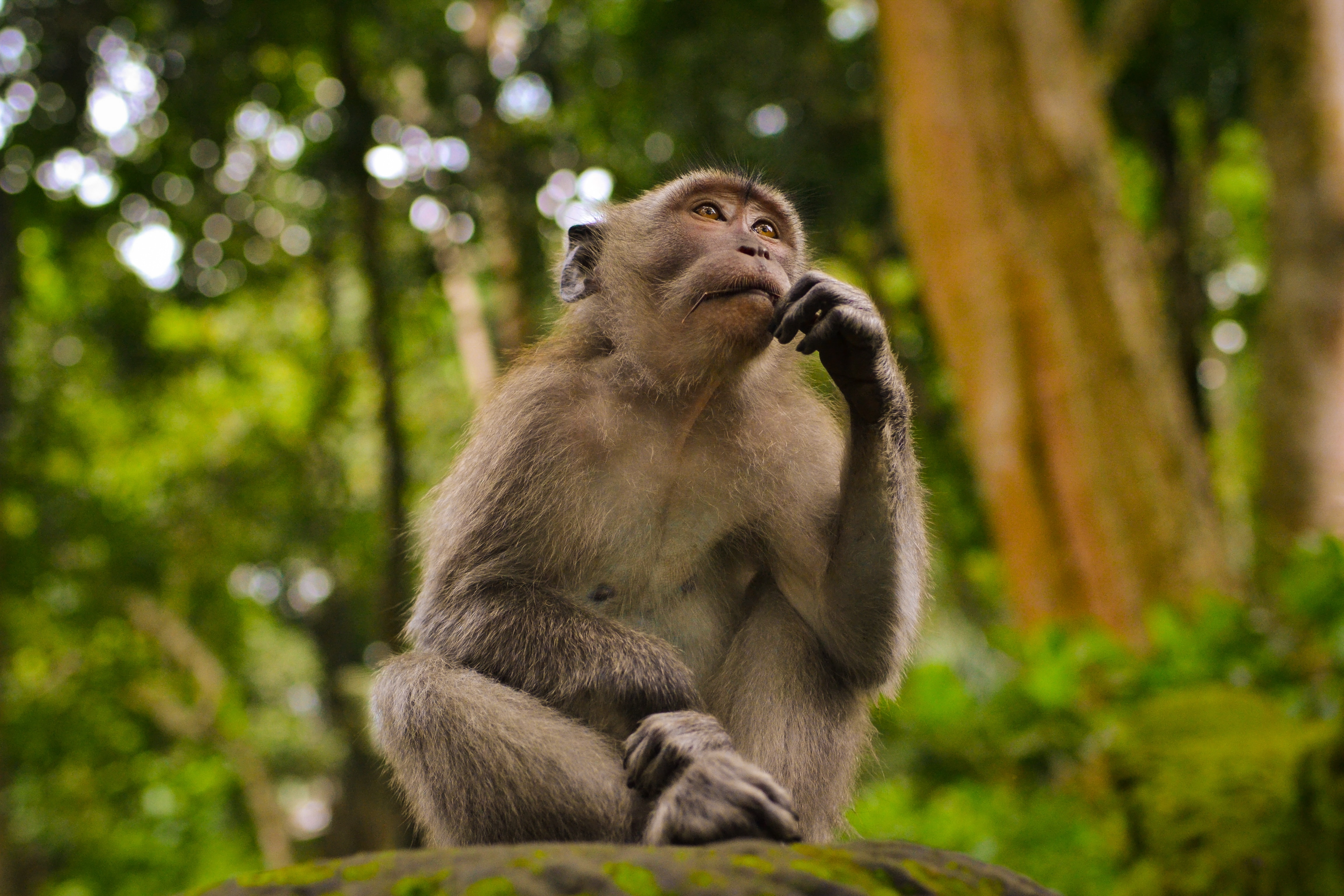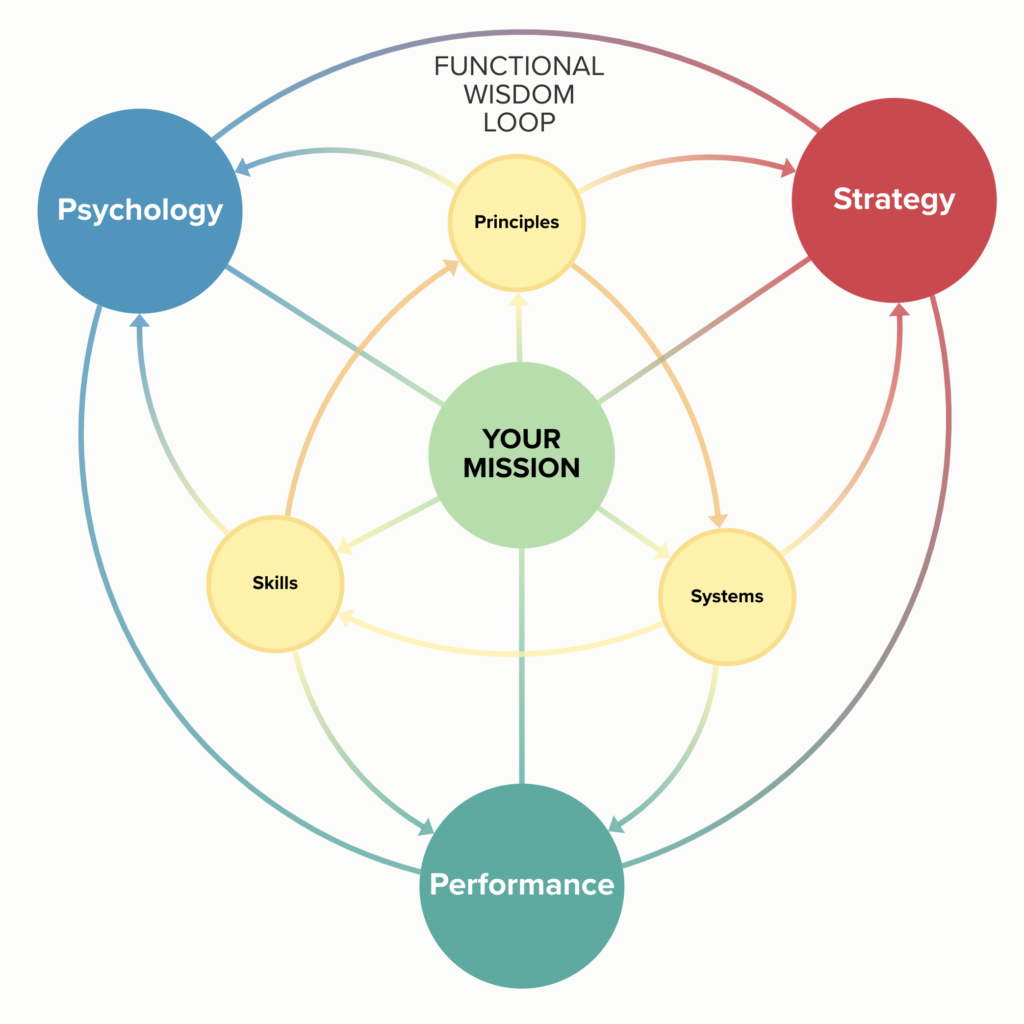In short, it’s about using Complexity Theory to make sense of life. Fortunately, it works. Unfortunately, it takes some work to get there.

The Purpose of Knowing
One of my favorite teachers once shared a personal story in class. It was about her motivation for learning. She mentioned that her family kept asking her “What do you read so much for?” and while that ruffled her feathers a bit, she simply answered, “because I like it.” At some point, though, she chose to answer the question herself. She had always read out of impulse. It was pleasurable, but she wanted to know why. She shared with us how her learning, especially through books, allowed her to see so many things that others couldn’t. She used the lens analogy, telling us that some fields of science tinted some areas, and others compensated for that tinting. And overall, it was about finding a full spectrum vision. The more you know, the more you’ll understand, she said. And once she realized the effects of knowing more, concluded that she kept learning to “stay free -of any kind of fanaticism, zealotry, or herd mentality.”
However, she continued, the more she spent time with experts, academics, and specialists of all fields, the more she realized that most of them had lost something along the way. She commented that knowledge, when unchecked, can promote disconnection from reality -including other people, other fields of knowledge, or even facts. She mentioned how people she grew up with even expressed pride in newfound identities derived from their knowledge, such as atheists, socialists, or libertarians. While looking down on other groups, such as the religious. All for the sake of defending what they knew. She described the effect of echo chambers and filter bubbles many years before they were mainstream expressions (this class took place about a decade before social media.) So, “in order to stay free, you need to connect your knowledge with reality”, she concluded. “Don’t lose yourself trying to know everything while forgetting about life.”
Her story and advice had stuck in my mind since that day. At the time, I didn’t really get the connection between reading, knowledge, freedom, or disconnecting from life. I understood her point, there was nothing confusing about what she shared. But it was too abstract for me. Many years later, though, it’s no longer abstract. And this story distills the logic behind the Wholly Human Project. Let me elaborate…
The Fundamental Aim: Staying Grounded
At the core of the scientific method, you have the idea of replicability. Through observations, methods, and analysis, you “extract” knowledge from reality. Knowledge that can then be replicated by anyone else. This implies staying as grounded as possible. You focus on facts, on what you can see, monitor, and measure. And once you have a solid piece of knowledge, one that has been proven and validated, you can move on. Having that piece as the foundation for what comes next. And eventually, a piece of knowledge discovered in this way may fit into larger fields of science, standard methods, or new theories.
Most of us, learn about endless bits and pieces of knowledge after they’ve been fully validated. A lot of them centuries ago, even. But unless you learn them in a practical way, you only learn them intellectually, through abstractions. A type of learning that isn’t grounded. This is economical, as it wouldn’t make sense to repeat all the experiments since the dawn of science, and there’s no need to reinvent the wheel if you can learn about most things through classes, lectures, or books. But keep in mind that this is mental knowledge. In school, undergraduate, and graduate programs, we go through many learning experiences, that can help us go from theoretical knowledge to grounded knowledge. Think about laboratories, fieldwork, or research projects. This is how we acquire knowledge. Real knowledge. Real to us, at least.
Depending on the context, at some point, we stop learning through grounded methods. We simply use what we know, we follow the standard procedures, and go through the motions of our career. If we’re responsible, whenever we get new methods, new practices, or new rules to do something, we’d put them to the “reality test.” We make sure to learn in a grounded way. Unfortunately, as you might be thinking, this isn’t what happens most of the time. We have to follow the business plan, comply with legal norms or internal policies, and align with the CEO’s and the Company board’s vision. Forget about grounding anything. This is the way.
The example above focuses on the professional front and how we may start losing touch with reality within it. But now consider how most of us never get any type of education -theoretical or grounded- about so many areas of life: romance, personal finance, emotional intelligence, or entrepreneurship. If you listen closely to widely successful people and authors (in business, science, investing, art, or any major field,) you’ll notice that they all suggest staying as close as you can to reality. Which sounds obvious, but it doesn’t mean much. Also, we don’t have direct ways to realize how removed we are from reality-ignoring how we end there in the first place. All of this can make life confusing, unpredictable, and often overwhelming. The main culprit: living life in the abstract.
Abstraction: Maximizing knowledge at the expense of reality
If it wasn’t for our ability for abstraction, rationality would be impossible. And if you want to learn about life, it’s thanks to abstraction that we use reason and can connect so many dots across different fields of knowledge. You can learn about mathematics, philosophy, psychology, or biology, without having to become a certified professional in each of those fields. But just like any other feature from the human experience -like humor, cooperation, or tool making- abstraction is just that: a feature. Not an end. As we become fixated on what we know, on what we can model, predict, or understand, we tend to distance ourselves from the ground. Losing touch with reality in a number of ways. Some people can become fully dissociated, like conspiracy theorists or paranoids, without an inch of reality in their thinking. Others simply isolate themselves and find comfort in their intellectual adventures. While most “normal” and rational people find groups of like-minded individuals, in which specific forms of abstraction become the norm.
Without realizing it, most of us adopt interpretations of reality, derived from abstract knowledge, from interpretations. So many of those interpretations “make sense,” and they seem to hold up when you evaluate them through the lens of what you’ve read or learned. And you stop questioning them. Which is natural. Except that over time, this means that you could be creating your own personal bubble. Since everything looks fine at a glance, you assume you’re right. And you leave it at that. The bubbles that we all create are not bad in themselves, and it’s not like we’re completely disconnected from reality or the people around us. Some might drift away and get disconnected in problematic ways, but most people that able to hold a job don’t go that far.
As we adopt many of those stories as givens, we comply with them in ways that serve us. But we fail to recognize that those stories are not always grounded in reality. They’re just what we’ve chosen to believe. Sometimes reality and what we believe may match. But in that case, that would be luck -and we wouldn’t realize that they are two separate things (your abstract knowledge + reality). The goal is to develop enough awareness of what we believe, and what we know, so we can use it in the future. In all areas that matter to us (love, career, money, or health.) Otherwise, we’re simply creating a safe haven for ourselves. Fencing off unnecessary questions that are unresolved, and falling prey to many cognitive traps, such as identity foreclosure.
Identity Foreclosure: when we settle prematurely on a sense of self
— Adam Grant
without enough due diligence, and close our minds to alternative selves.
In defense of abstraction, it doesn’t create disconnection, fanaticism, or identity foreclosure by itself. This tends to be the result of fixation. Which is a different process, but one that depends on abstraction. And that’s why operating exclusively from the abstract can create problems and it’s why we need to learn ways to avoid that fate. In any area of life.
Functional Wisdom: A Way to Leverage Abstraction by Staying Grounded
As it happens with most nuanced situations in life, finding our way between staying grounded and learning through abstraction, isn’t an “either/or” choice. Rather, it’s about finding a way to create a context of “both/and”. We can leverage our knowledge in big ways, both by staying grounded and maximizing abstraction. This brings us to Complexity Theory.
Complexity is what you can’t predict. Yet once you observe something that is complex, such as natural ecosystems, markets, or large organizations, you can detect patterns. These patterns are formed from multiple interactions, creating feedback loops, and giving rise to systems. From all of these dynamics, Complexity Theory aims to explain the big picture of things, while being fully informed from the little details that make up that picture. Or, as economist and Nobel prize laureate Thomas Shelling would say: observing “micro-motives” that shape “macro-behavior.”
It doesn’t take much convincing to realize that human life is complex. And that’s why it could be a good idea to try to go beyond the conventional, linear, and disconnected ways of learning, thinking, and living to understand life. We can find new ways of understanding the forces that shape our lives, leaving behind black and white thinking, and embracing the multiple shades of gray. This isn’t easy. But it’s a more precise and accurate approach to make sense of life. Following the train of thought from complexity theory, the Wholly Human Project is based on a practical form of wisdom. That can serve as a guide for learning and living, called Functional Wisdom. Summarized and illustrated as follows:

Learning to become grounded, to use abstraction productively, and develop ongoing self-awareness are tall orders. And they depend upon many factors -at least three: Psychology, Performance, and Strategy. Having a system to navigate all of this could help you keep the moving parts in check -through the use of Principles, Systems, and Skills.
That’s the logic behind the Wholly Human Project.
The main proposition is to create a form of wisdom that is based on functionality. As you might suppose, each of those core factors shown in the diagram, depends upon additional ones, with subsystems of their own. All interconnected through a system of networks. This is why Complexity Theory is a great vehicle to make sense of all of this in a practical way. And this is what you can expect to get from the Wholly Human Project. A functional map to help you understand the forces, factors, and elements that make up your life. If you think you’d like to know more about this and get unique content to go deeper, you can sign up here.